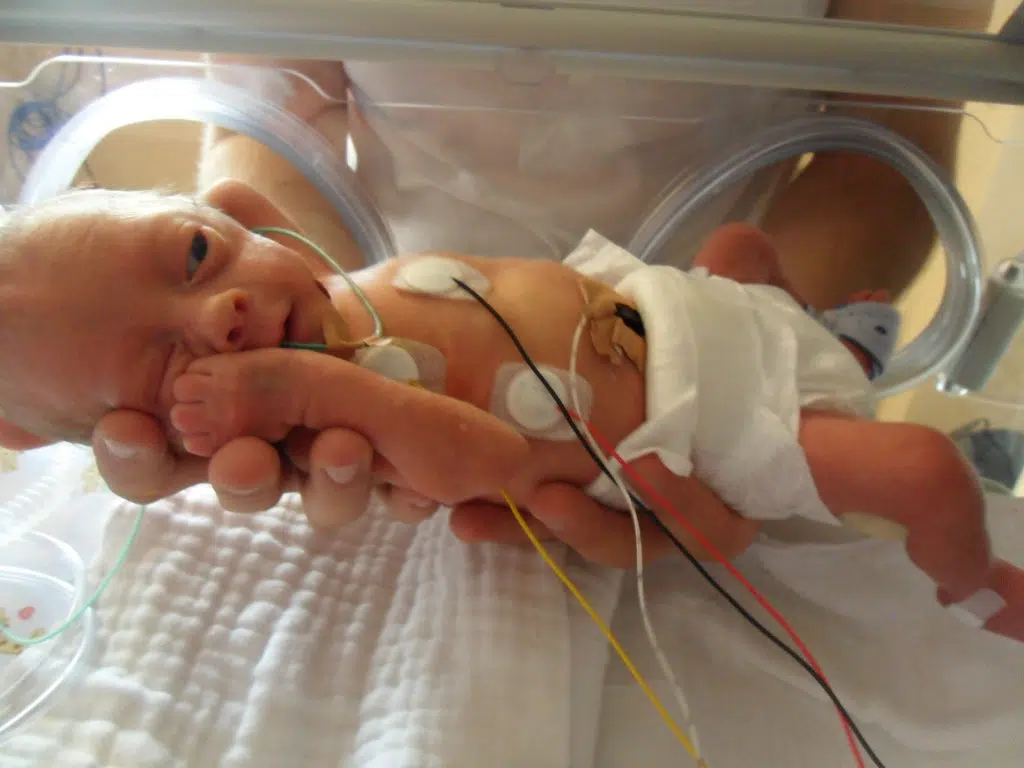
Sharing your NICU story is a tricky one. I could go for the basic description.
My pregnancy had lots of bleeding. I went into labour at 27+6 weeks and gave birth at 29. He was in NICU for 9 weeks and then came home. He’s been amazing since he’s been home even though there’s medical issues and been delays.
That’s the most commonly shared story you hear of right? That or the media story of “she’s been on oxygen since she can home after being born at 23 weeks”. The reality is that there is a hazy middle ground of it all. You can’t share every last detail of the NICU story – which includes the lead-up and being at home after. Some of that is too raw, too confronting, to boring. For me, that journey included surgery’s to get pregnant, infertility, questioning if I’d ever be a mum, and eventually, seeing that positive double line. You can’t share every moment of pregnancy. That included haemorrhages, leaking waters at 17 weeks. Thinking I’d lost him, time and time again.
Going into labour
Going into labour – or the birth or near birth experience for some – is nothing like labour at term. It’s anxiety filled, panic, blind faith in doctors and somehow – for me – the tension and struggle between anger at God and still trusting him.
It’s not remembering anything other than trying to hold a gown over your boobs as you peered over the edge of the bed awkwardly to see your ventilated son for the first time. I only remember the gown and boobs bit – the rest is just filled in with photos.
And then it begins
It’s pumping to the photo of a boy who look nothing like your child – but it still doesn’t count. It’s counting nappy weights and grams and oxygen percentages coming through CPAP. It’s knowing you have control over none of that. It’s knowing what an umbilical line is before you know his height. Seeing machines before you see your baby. Not knowing if you can kiss this child – Will it make them sick? It’s saying your name to a receptionist before you get to see your child. There is a doctor, a nurse controlling all these things and you have to work out how to be Mum.
It’s stopping cuddling him at 4 weeks old because he kept stopping breathing when you cuddled him. It’s the hormones of a new mum, and the drama of having your number one love attached to wires, tubes and IV’s in an intensive care unit. It’s having to have a NICU story at all. And yet, it’s having it become normal.
Life is medicalised
Then a time later they get to come home. And comes the waves of not knowing what to do, the same as getting home with a term baby. But things are medicalised. Your first thought when he’s screaming isn’t “he has a sore tummy”, it’s “Is his hernia strangulated?”. What if they don’t gain enough weight? Will we have to go back in?
When he’s not rolling at so many months old, you start to question the rest of the development to ensure his development is on track. Because you were told that they don’t know how his development will go because of the brain damage he has. And it’s not being told about that until a discharge meeting at 7 weeks old.
It’s being when he’s two that you’ll be going along to a weekly program to help his development for about 10 weeks – just to catch him up. And it’s staying in that weekly program until he’s 5 and a half. It’s all those things that aren’t normal. That aren’t usual. That take time for your head to comprehend, never mind accept. That take time out of your life to both process and actually do.
All that time later
And then, you realise years on that things aren’t quite as per normal, even now. Some aspects of development have been changed – probably for life. But how could they not be? Rather than being in a safe, warm dark environment that last trimester was spent on the outside. With beeps and alarms, lights and voices, touching and breathing machines. How could you not be changed?
This is the stuff that is left with a NICU story for a family. It’s the stuff in the middle. Not the stuff so incredible that it demands media attention. It’s not the accomplishments shared so readily with Facebook. It’s not even the heart stopping challenges that require talking with a professional. It’s the day by day mental and physical differences from that of a ‘healthy, happy, normal’ term child that everyone so adores. It’s that stuff in the middle that changes lives.
